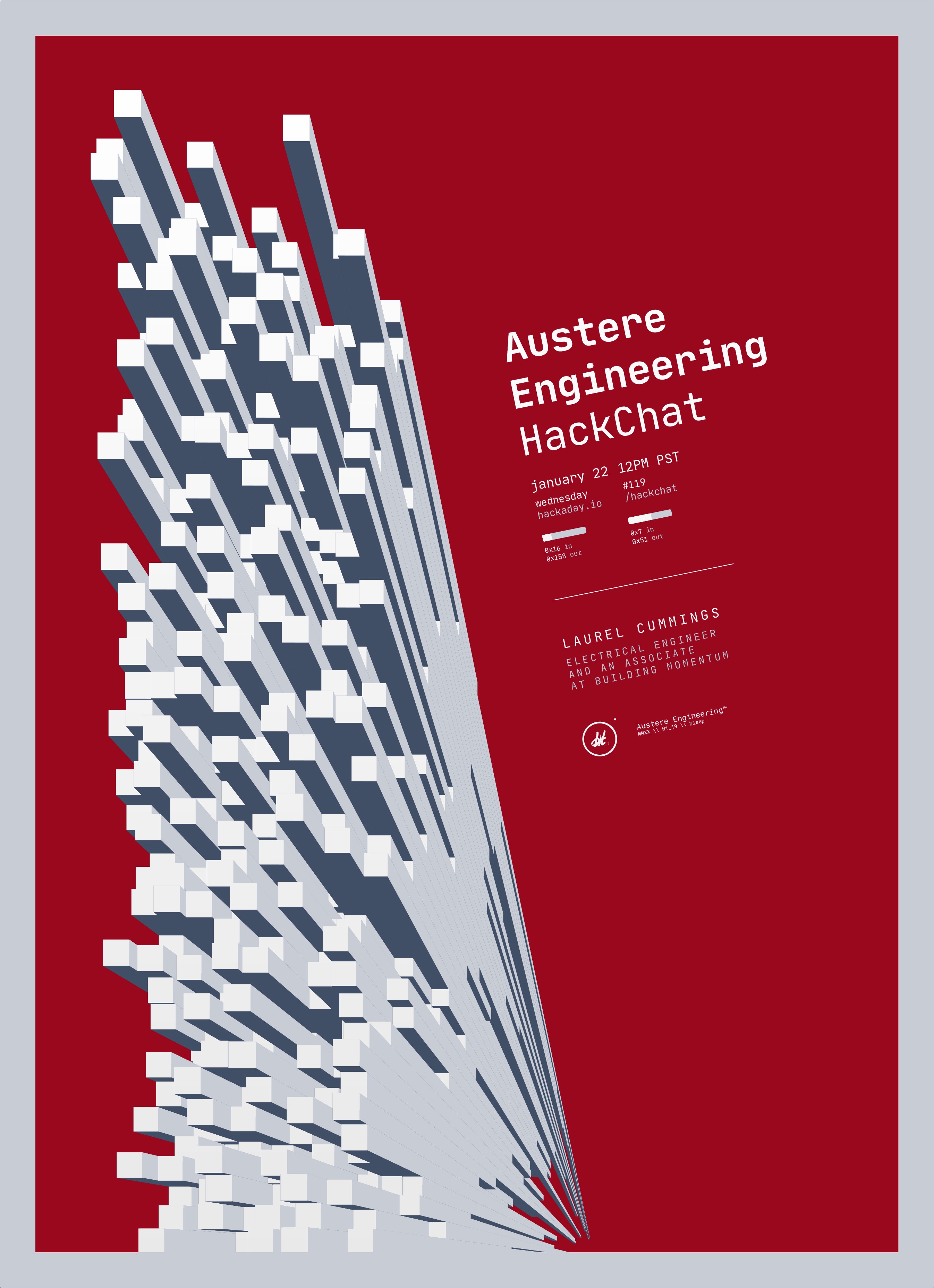Laurel Cummings will host the Hack Chat on Wednesday, January 22, 2020 at noon PST.
Time zones got you down? Here's a handy time converter!

For most of us, building whatever it is that needs building is something that occurs in relative comfort and abundance. Sure, there are cold workshops and understocked parts bins to deal with, but by and large, we're all working in more or less controlled environments where we can easily get to the tools and materials we need to complete the job.
But not all engineering is done under such controlled conditions. Field operations often occur miles from civilization, and if whatever you need is not in the back of the truck, it might as well not exist. At times like this the pressure is on to adapt, improvise, and overcome to get the job done, especially if people's lives and well-being are at stake.
All of this is familiar territory for Laurel Cummings, an electrical engineer and an associate at Building Momentum, a technology development and training concern based in Virginia. Her job is to get out in the field and work with the company's mainly military and corporate clients and help them deal with the challenges of austere environments, including disaster response efforts.
From a North Carolina beach ravaged by Hurricane Florence to the deserts of Kuwait, Laurel has had to think her way out of more than a few sticky situations. Join us as we discuss what it takes to develop and deploy field-expedient solutions under less-than-ideal situations, learn how to know when good enough is good enough, and maybe even hear a few war stories too.










I like the idea of an online maker task force suggesting ideas for fast and simple solutions in the field - internet connection assumed :p And the question between doing something fast (and even dirty) or work it out in lots of detail surely has the potential to open a whole area of conflict between makers :-) In some software development fields this is almost an everyday decision to find (with fast solutions evolving to long term solutions driving successive programmers insane if they were not well commented). Thanks for the insight.